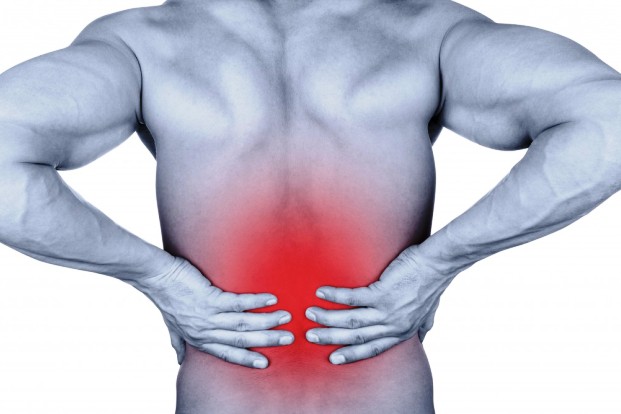LOWER BACK PAIN
Apr 19, 2022
Lower back pain is one of the leading cause of sick leave and loss of working days. Lumbar spine is made up of interconnecting bones, discs, nerves, ligaments and muscles, all working together to provide support, flexibility and strength to your back. Lower back pain can result from any of these structures turning into pain generators. Broadly speaking it could be mechanical back pain, radicular pain or discogenic pain.

Types of Lower Back Pain:
- Mechanical low back pain – This is usually pain from muscles, ligaments, joints (facets, sacroiliac joint) or bone. It is usually localised pain in lower back, sometimes buttocks or thighs.
- Radicular pain – This is caused by pressure on nerve roots due to various reasons, mostly disc. It is sharp, electric, burning type, with tingling and numbness. It radiates down upto the legs along the dermatome of the affected nerve root.
Management of lower back pain:
80% of lower back pain resolves on itself, and only 5% needs surgical interventions, rest 15% can be managed by pain management interventions and proper excercises.
History, physical examination and imaging all help in arriving to a diagnosis. If patient fails to respond to conservative treatment of 4 to 6 weeks , they can be better managed by pain interventions to improve results, and alleviate sufferings. Diagnostic pain blocks help you to pinpoint the culprit pain generator and manage scientifically.
How to Prevent Lower Back Pain?
Prevention of lower back pain includes:
- Weight control
- Healthy diet
- Proper rest and exercises
- Maintaining proper posture while sitting, lifting with your legs and not your back
- Avoiding smoking and alcohol
When should you consult a doctor?
If you have persistent back pain hampering your daily activities, you should visit a pain physician. Pain medicine is a specialty of modern medicine that uses safer drugs, minimally invasive technologies & a scientific multidisciplinary approach to treat your pain. Back pain associated with a history of Trauma or suspected fractures and those associated with lower limb paresis or paralysis or bladder, bowel incontinence should be seen by spine surgeons or Neurologists as required. Self-medication can be dangerous & should be avoided.









